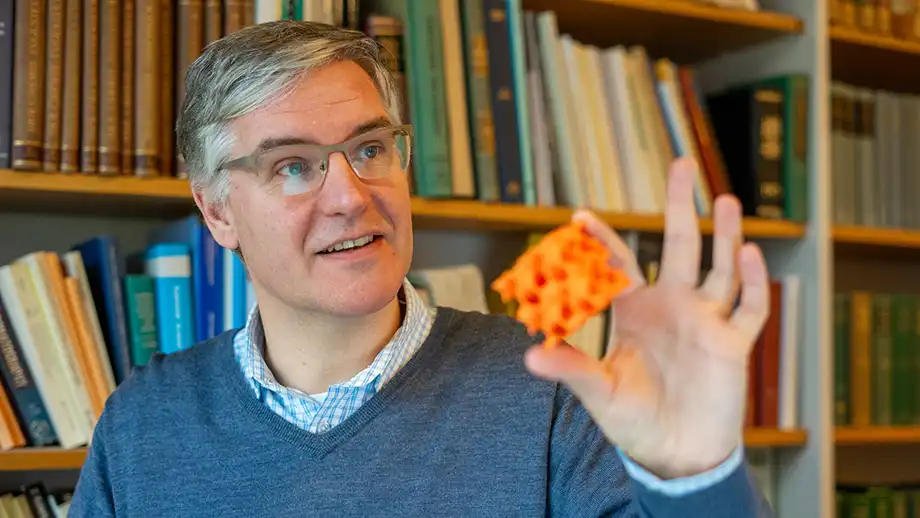KTH to lead new center for fossil-free chemical production

A new research center will develop technologies to transform carbon dioxide into valuable products – from plastics to pharmaceutical building blocks. Together with Stockholm University, KTH has been awarded SEK 60 million from the Swedish Foundation for Strategic Research (SSF) to establish the center ACCELERATE. Here, researchers, industry partners, and international collaborators will join forces to make chemical production fossil-free.
To reach climate goals, cutting emissions will not be enough, we also need to find ways of reusing the carbon dioxide already circulating in the atmosphere. ACCELERATE will therefore focus on processes where CO₂ becomes a raw material for chemical production.
“Chemicals are everywhere in our daily lives, and today they are produced mainly from fossil-based molecules. Sweden lacks its own fossil resources and is completely dependent on imports and a functioning global market,” says Christophe Duwig, Professor at KTH and coordinator of the consortium.
His aim is to increase the use of biogenic CO₂ (bio-CO₂) – carbon dioxide released when organic materials are burned – instead of fossil CO₂. The center will cover the entire value chain, from CO₂ capture to the development of new precursors and chemical products.
“We are building an integrated environment where new materials and processes are developed in parallel with preparations for scale-up. A unique aspect is that we are including techno-economic analyses and life cycle assessments from the very beginning, to ensure that solutions are sustainable and profitable by design,” says Christophe Duwig.
ACCELERATE will also serve as an umbrella organization for broader initiatives in carbon capture, utilization and storage (CCUS). Some projects in this field are already underway.
International collaboration
The center will provide a platform for close collaboration between academia and industry. Seven Swedish companies, two industry organizations, and four international research actors are part of the initiative.
“Collaboration with industry is crucial for scaling up these processes. We are very pleased to work with companies spanning chemical production, industrial lubricants, and pharmaceuticals. The consortium also includes CO₂ owners and innovative SMEs – making it a truly complete ecosystem,” says Christophe Duwig.
The center will launch on January 1, 2026, and run for six years. SSF will provide SEK 60 million in funding. The hope is that the results will not only generate new technological solutions but also shift perspectives on carbon dioxide – from being a problem to becoming a resource.
“This is a step toward building knowledge and expertise in carbon-negative chemistry in Sweden. We need to transform and use our resources more wisely. The pressure is high – both from a climate and resilience perspective,” says Christophe Duwig.
Text: Anna Gullers
